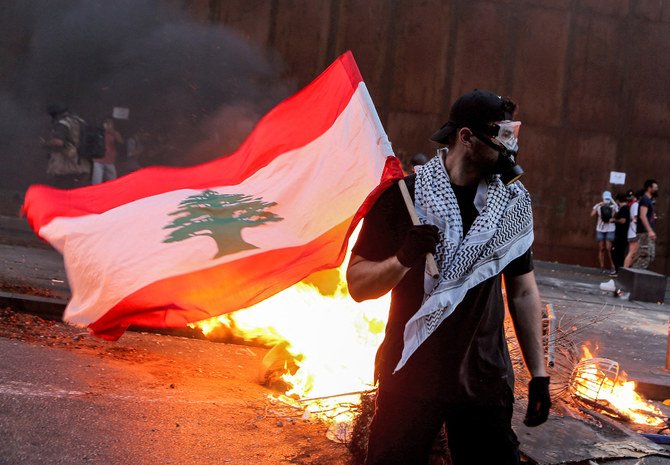
- ARAB NEWS
- 01 Jul 2025

The day heats up quickly during summer in Beirut and, as I get ready for work, I watch my little boys sleeping on the tiles in an attempt to find some respite after yet another long and suffocating night in their beds, with no electricity and no air conditioning to cool them down.
Escaping the wounded capital was a must. We packed our bags that same day and left for the mountains because we, the Lebanese, are resilient and have solutions for everything.
The mountain ranges along the Mediterranean coast are a traditional escape from the midsummer heat, but their appeal is all the more strident, offering respite not just from the heat, but from the crumbling of our capital city in front of our eyes.
The government provides households with two hours of power every day — barely enough to charge our watt-dependent lives to get them through to the next recharge window.
Generator providers, a business thriving amid the power crisis, charge exorbitantly and cite fuel shortages as reason for the hike in prices.
“If you don’t like it, get yourself a generator,” they say.
As we head inland, toward the region of Sawfar which refers to itself as “the most beautiful village in Lebanon,” we pass hundreds of cars lined up on the side of the road, waiting for their turn to get to the fuel stations. Through the patient commotion, I hear a worker at the station shouting: “We’ve run out of fuel. Go home.”
Some have been waiting since dawn, enduring hours under the sun, only to leave empty-handed. We know how that feels because we were in their shoes just days ago: My husband could not go to work due to lack of fuel.
My laptop has been charging off the car and, as we reach the mountain house, the battery is full and I have a power bank for my internet router. I put my self-coaching skills into practice and decide to work in peace. I manage to work for one whole hour and, bang, the internet connection is gone.
The question remains, how long will we be able to keep this up?
Jana Salloum
“An electrical failure occurred in Sawfar Central due to the pressure on the generators, which led to the suspension of our services in the areas affiliated with Sawfar Central, Hammana, Shabaniah, Ras El Matn, Qurnayel and Salima,” our telecom services provider, Ogero, reports on its Facebook page.
We pack up again and head for Bekaa Valley, where my parents live. A happy reunion because they still have the internet and power — for the time being — giving me a chance to recharge my laptop.
I have a fleeting moment of victory. The same victory most Lebanese experience when they track down their daily share of bread and food, or their medications, or milk and diapers for their newborn babies, after searching for it everywhere and paying double, triple, or even 10 times the usual price.
We woke up to the news of the fuel tanker explosion in the town of Talil in Akkar, northern Lebanon, last Sunday that killed more than 20 people and injured about 80. The scene reminded us of the Beirut blast from last year.
This is sad. Lebanon is a stricken country already, where citizens consider getting their least basic needs a victory, and people are being killed for trivial reasons.
This is no longer resilience, this is surrender in a country taking its last breaths and waiting for a miracle.
In a country with an unemployment rate exceeding 40 percent, I feel blessed to have a decent job.
However, the question remains, how long will we be able to keep this up?